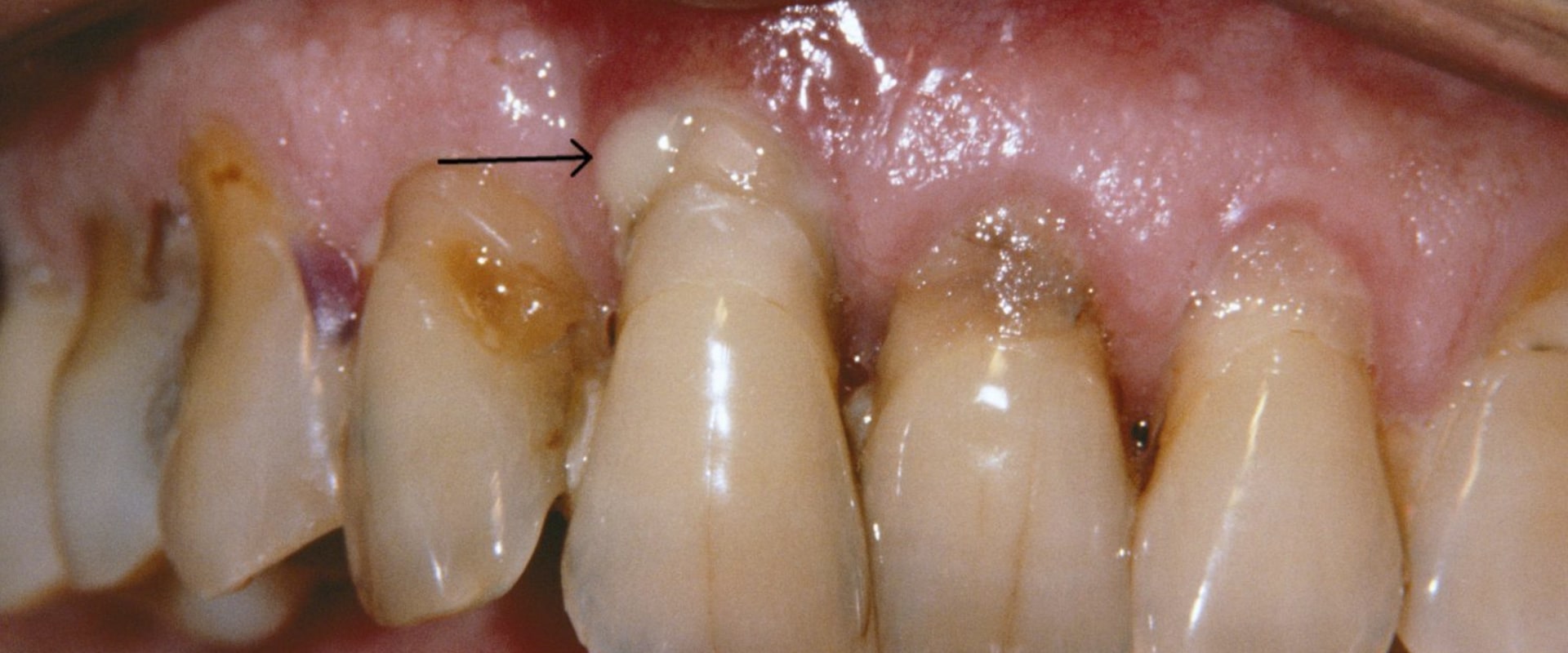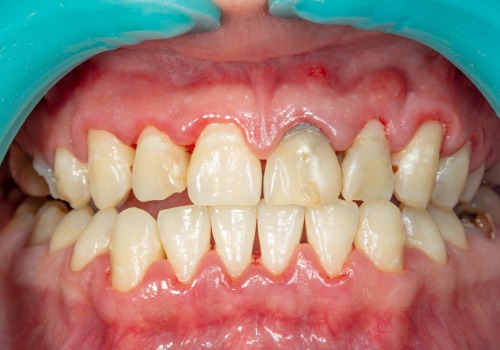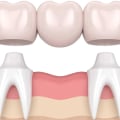Periodontitis (also known as periodontal disease) is a serious gum infection that can cause tooth loss, bone loss, and other serious health complications. In its early stages, it often doesn't cause any symptoms, making it difficult for the average person to notice. Over time, the bacteria begin to cause inflammation in the gums, which can easily cause redness or tenderness, swelling, and bleeding. Receding gums and other symptoms of periodontal disease can make teeth feel sensitive.
Pain when consuming hot, cold, or sweet foods or drinks is one of the most notable signs of tooth sensitivity. You may also feel pain when you bite or chew, regardless of the temperature of the food. At this point, you may feel pain in your gums. Estimates suggest that about 47.2% of American adults over the age of 30 have periodontal disease, increasing the risk of early tooth loss. As the infection progresses, the gums swell and sometimes even turn purplish.
The best way to prevent periodontitis is to get into the habit of taking good care of your mouth and teeth. It is of the utmost importance to stop the progression of periodontal disease before it causes further damage to the tissues of the gums and jaw. To help prevent periodontitis or improve the chances of successful treatment, brush your teeth at least twice a day, floss every day, and get regular dental checkups. We offer personalized treatments to stop periodontal disease and even reverse some of the damage it causes. If you have further questions about the signs and symptoms of periodontal disease, see your dentist. For example, periodontitis is linked to respiratory diseases, rheumatoid arthritis, coronary artery disease, premature birth and low birth weight, and problems controlling blood sugar in diabetes.
Suffering from insulin resistance and being diabetic also increase the risk of developing periodontal disease, as these conditions increase levels of inflammation in the body. If periodontitis is not treated, it is possible to damage the jaw bone and to cause small spaces to open between the gums and the teeth. Good oral hygiene keeps your teeth and gums clean, but if you don't brush and floss your teeth regularly, you can develop periodontal disease. There are many common types of periodontal disease, such as aggressive, chronic, and necrotizing necrotizing periodontitis and periodontitis associated with systemic diseases.








